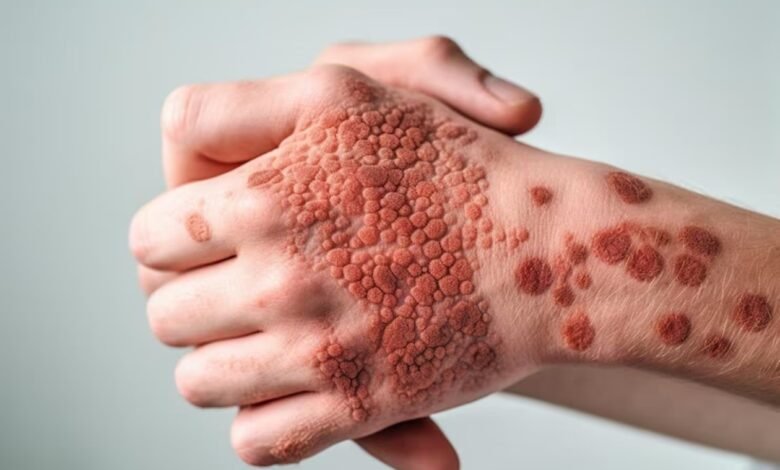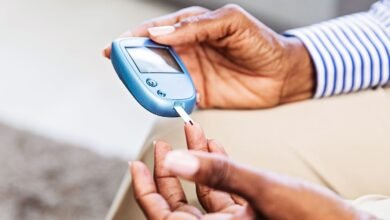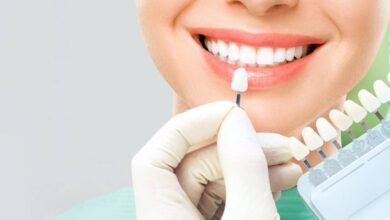Symptoms of Skin Cancer and How to Reduce It At Home Naturally

In the quest for overall well-being, understanding the symptoms of skin cancer is crucial for early detection and prevention. Skin cancer, a prevalent form of cancer, manifests through various warning signs that necessitate attention. Recognizing these symptoms early on empowers individuals to take proactive steps towards their health. From abnormal skin changes to specific indicators associated with melanoma and non-melanoma skin cancers, awareness is the first line of defense against this potentially serious condition.
While professional medical guidance is indispensable in managing skin cancer, there are also natural approaches that individuals can adopt at home to complement their overall skin health. This guide will explore both the symptoms of skin cancer and provide insights into natural methods to reduce the risk and support skin health. By combining vigilance in symptom recognition with proactive lifestyle adjustments, individuals can take meaningful steps towards minimizing the impact of skin cancer and promoting skin wellness.
Understanding Skin Cancer Symptoms
Skin cancer is a prevalent and potentially serious condition that can affect anyone, regardless of age or background. Recognizing the symptoms is crucial for early detection and effective treatment. Here, we’ll explore the various signs that may indicate the presence of skin cancer.
Common Types of Skin Cancer
Melanoma:
- Irregular moles or new growths on the skin
- Changes in the size, shape, or color of existing moles
- Asymmetrical moles with irregular borders
Basal Cell Carcinoma:
- Pearly or waxy bumps
- Flat, flesh-colored or brown lesions
- Sores that continuously crust and bleed
Squamous Cell Carcinoma:
- Red, scaly patches
- Open sores that don’t heal or heal and return
- Raised growths or lumps with a central depression
General Symptoms of Skin Cancer
Itching or Tenderness:
- Persistent itching in a particular area
- Tenderness or pain in a mole or lesion
Changes in Skin Texture:
Rough or scaly patches
Skin that feels different from the surrounding area
Unusual Manifestations
Bleeding or Oozing:
- Moles or growths that bleed without apparent cause
- Oozing or crusting in certain areas
Satellite Lesions:
Small, additional growths surrounding a larger one
Signs of Advanced Skin Cancer
Swelling or Enlargement:
Rapid growth or swelling of a mole or skin lesion
Changes in Sensation:
Numbness or tingling in the affected area
Localized Symptoms
Eye-Related Symptoms:
Changes in vision or eye pigmentation (for skin cancer near the eyes)
Oral Symptoms:
Lesions or changes in the mouth (for skin cancer on the face)
When to Seek Medical Attention
Rapid Changes:
Any sudden or rapid changes in the appearance of moles or skin lesions
Persistent Symptoms:
Symptoms that persist despite home remedies or over-the-counter treatments
Risk Groups and Regular Checks
High-Risk Individuals:
- Those with a family history of skin cancer
- Individuals with a history of severe sunburns
Read More: 7 Amazing Skin Benefits of Coconut Milk
Regular Skin Checks
Symptoms of Skin Cancer: The importance of regular self-examinations and professional screenings. Understanding the symptoms of skin cancer is vital for early detection and timely intervention. If you notice any of these signs or experience persistent skin changes, consult a dermatologist promptly for a thorough evaluation. Regular skin checks and a proactive approach to skin health can make a significant difference in preventing and managing skin cancer.
Risk Factors for Skin Cancer
Symptoms of Skin Cancer: Several factors contribute to the development of skin cancer, including prolonged sun exposure, genetic predisposition, and a history of severe sunburns. Understanding these risk factors empowers individuals to take proactive measures.
The Role of Early Detection
Symptoms of Skin Cancer: Regular skin checks, both self-examinations and professional screenings, play a pivotal role in early detection. Learning how to perform thorough self-examinations enhances the chances of spotting potential issues before they escalate.
Home Methods for Reducing Skin Cancer Risk
Symptoms of Skin Cancer: Simple lifestyle changes, such as incorporating antioxidant-rich foods into your diet and adopting sun protection strategies, can significantly reduce the risk of skin cancer. Additionally, exploring natural remedies adds an extra layer of prevention.
Healthy Lifestyle Practices
Symptoms of Skin Cancer: Engaging in regular exercise not only promotes overall well-being but also contributes to skin health. Stress management, through practices like meditation or yoga, can further support a holistic approach to preventing skin cancer.
Natural Remedies for Skin Cancer Prevention
Symptoms of Skin Cancer: Certain foods and herbal supplements possess natural properties that may aid in reducing the risk of skin cancer. Including these in your diet can complement other preventive measures.
DIY Skincare Routines
Symptoms of Skin Cancer: Crafting a natural skincare routine involves choosing products that nourish and protect the skin. Understanding your skin type and using appropriate products is essential for maintaining skin health.
The Power of Hydration
Symptoms of Skin Cancer: Staying hydrated is a simple yet often overlooked aspect of skin health. Adequate water intake, along with hydrating foods, helps the skin maintain its elasticity and overall health.
Educational Outreach on Skin Cancer
Symptoms of Skin Cancer: Community awareness programs and the dissemination of accurate information by healthcare professionals are vital in preventing skin cancer. Empowering individuals with knowledge fosters a proactive approach to skin health.
Addressing Common Myths About Skin Cancer
Symptoms of Skin Cancer: Dispelling myths surrounding skin cancer is crucial for promoting accurate information. Clarifying misconceptions ensures that individuals make informed decisions about their skin health.
Real-Life Success Stories
Learning from individuals who successfully reduced their skin cancer risk provides inspiration and practical insights. Their stories highlight the impact of lifestyle changes and preventive measures.
Professional Guidance and Medical Intervention
Consulting dermatologists for regular check-ups and seeking medical intervention when necessary is paramount. Understanding available treatment options is crucial for individuals diagnosed with skin cancer.
The Emotional Impact of Skin Cancer
Coping with a skin cancer diagnosis can be emotionally challenging. Establishing support networks and prioritizing mental health is integral to navigating the journey effectively.
Read More: Types of Autoimmune Diseases and Their Symptoms
Conclusion
In conclusion, being vigilant about skin health and understanding the symptoms of skin cancer are paramount for early detection and prevention. Skin cancer is a serious condition that can affect individuals of all ages, and recognizing its signs can significantly impact the outcome.
Regular self-examinations, complemented by professional screenings, play a crucial role in spotting potential issues before they escalate. From irregular moles to changes in skin texture, being aware of the various symptoms allows for early intervention and, subsequently, better treatment outcomes.
Moreover, adopting a proactive lifestyle contributes to reducing the risk of skin cancer. This includes sun protection strategies, incorporating antioxidant-rich foods into the diet, and maintaining overall health through regular exercise and stress management.
FAQs
1. Can skin cancer be completely prevented naturally?
While complete prevention is challenging, adopting a healthy lifestyle, including sun protection and a balanced diet, can significantly reduce the risk.
2. Are there specific foods that help prevent skin cancer?
Yes, foods rich in antioxidants, such as berries and leafy greens, contribute to skin health and may reduce the risk of skin cancer.
3. How often should I perform self-examinations for skin cancer?
Monthly self-examinations are recommended, with more frequent checks for individuals with a higher risk or a history of skin cancer.
4. Is sunscreen alone enough to prevent skin cancer?
Sunscreen is crucial, but it should be part of a comprehensive sun protection strategy, including seeking shade and wearing protective clothing.
5. What should I do if I notice changes in my moles or skin?
If you observe any concerning changes, consult a dermatologist promptly for a professional evaluation.







